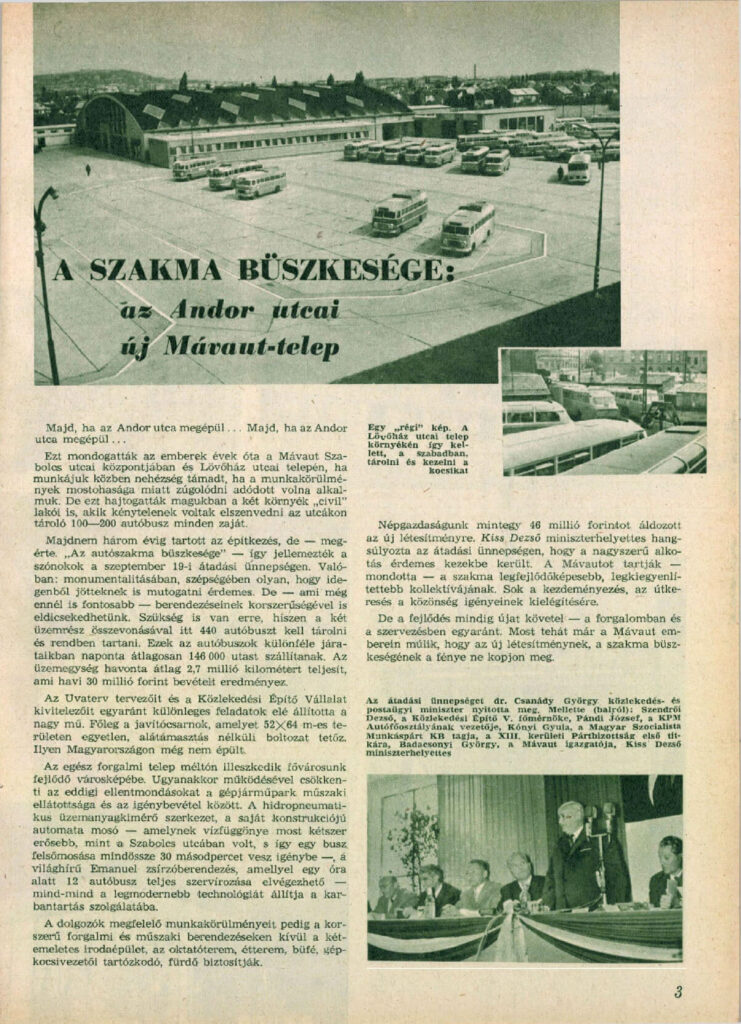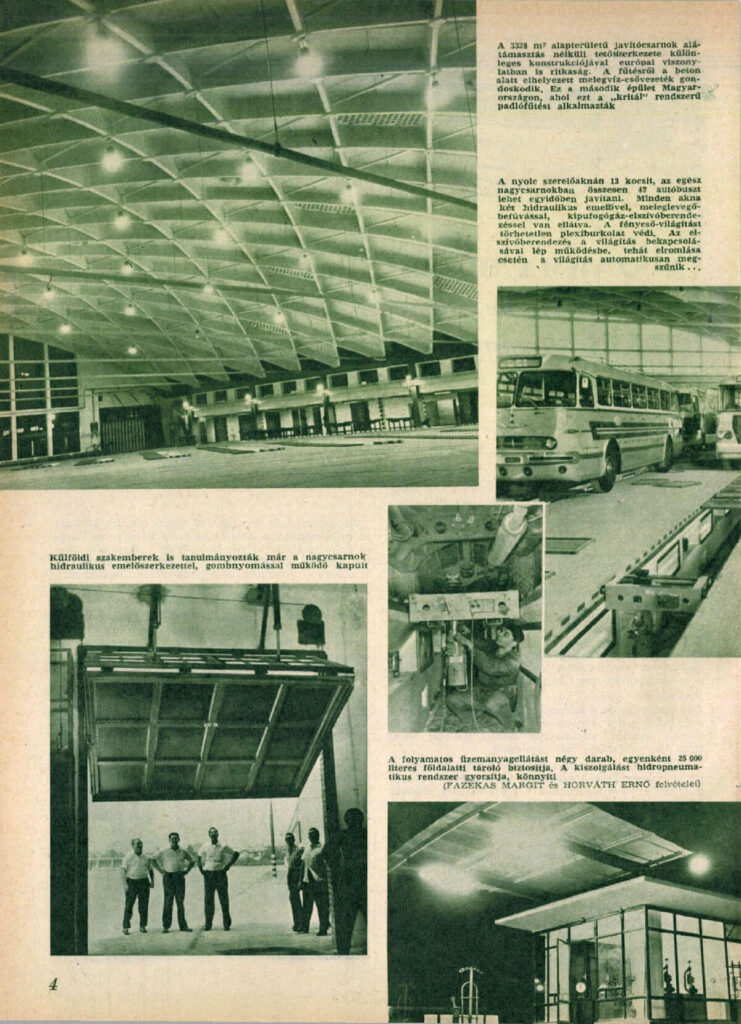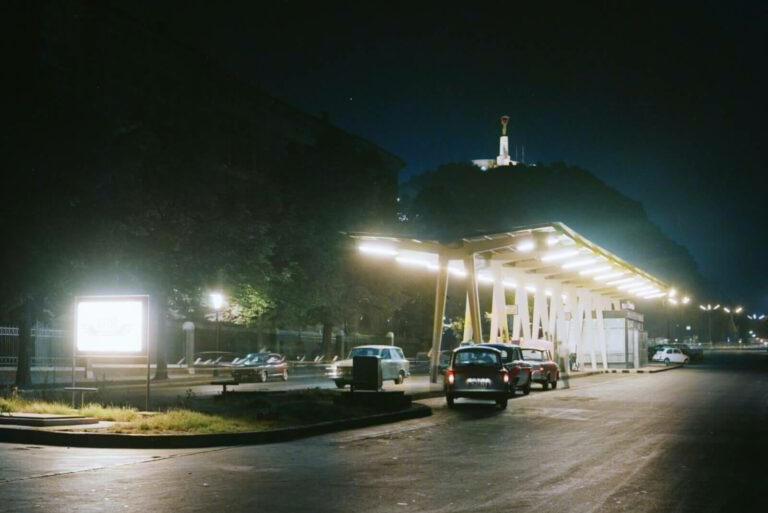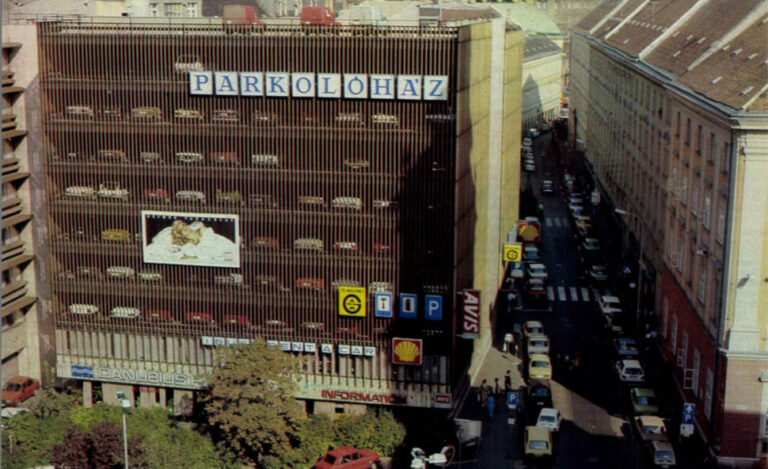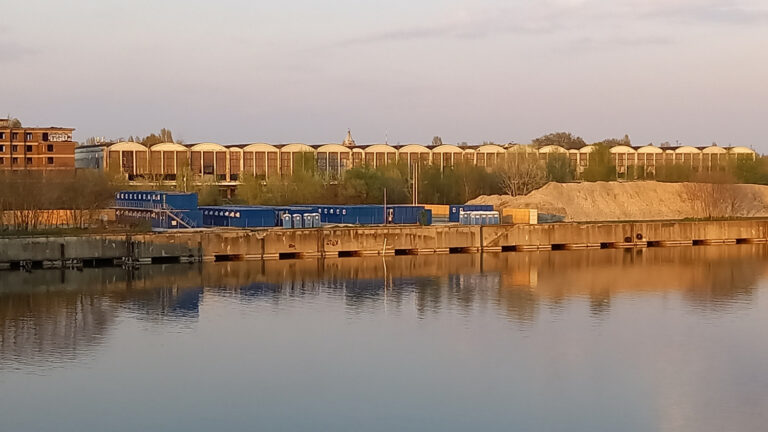1964 - The year when the MÁVAUT site on Andor Street was opened in Budapest
1964 in October in the Car Engine reported on the opening of the new, "worthy of showing to foreigners", which had been under construction for three years, Andor Street TRUCK premises.
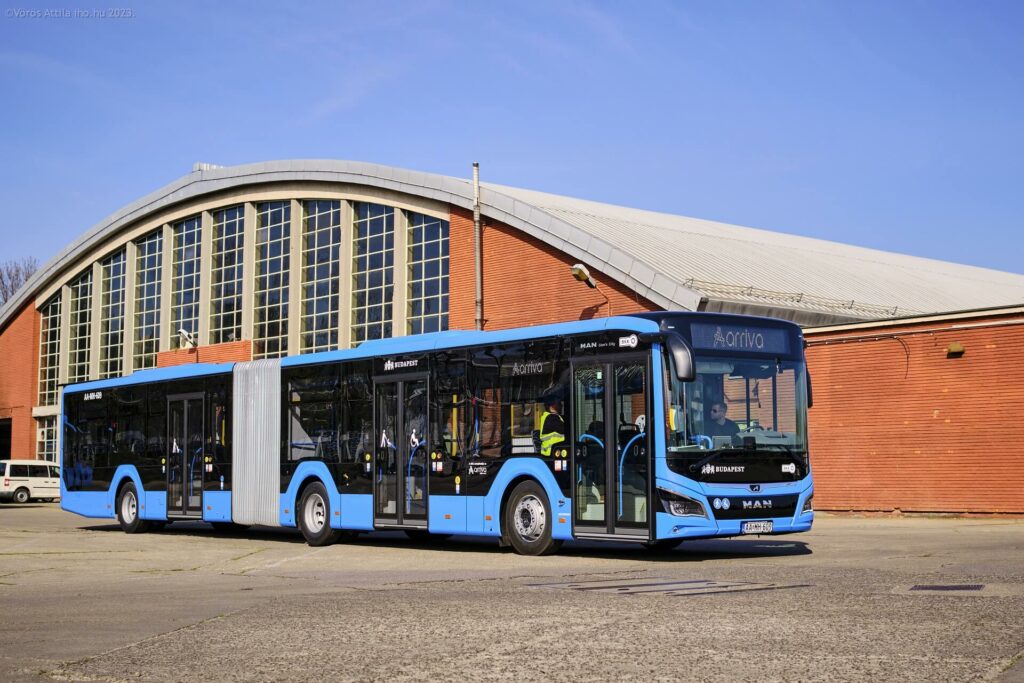
The construction, which began in 1963 on the basis of UVATERV's plans, was the company's most significant investment at the time: in addition to the 28-position, 3,400 m2 hall, the buses took possession of a 23,000 m2 concrete site on 29 August 1964. This was the date of the handover of the Passenger Transport Unit. The new plant relieved the Szabolcs Street site, and the buses were also moved here from the Lövőház Street garage of the Buda Headquarters; only routine repairs were carried out in the 'star garage'. As an external site, it also included the repair bases in Monor, Cegléd, Gödöllő, Inselhalmi, Zsámbék, Érd, Szentendre and, until its closure, the Lövőház Street site.
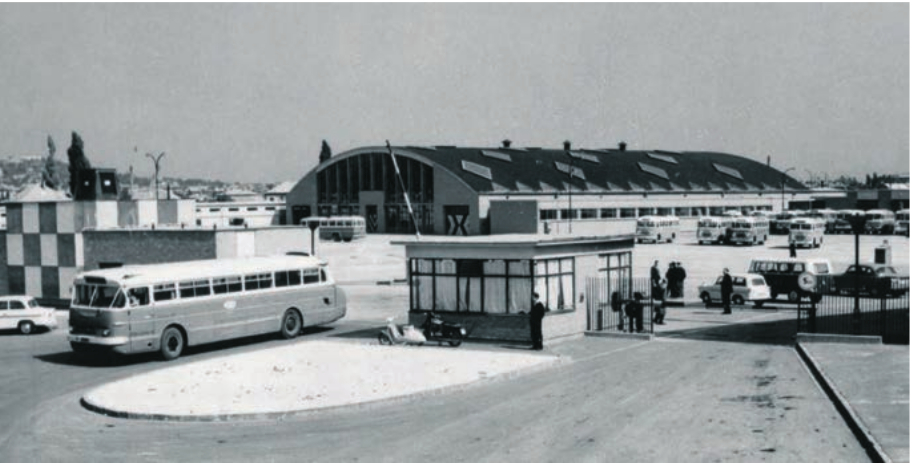
From 1970, the MÁVAUT successor Volán TRÖSZT, and later Volánbusz Zrt., owned the Andor Street plant until 2007, when it was sold to the Wallis Group (from October 2006, the new technical base in Fót took over the operational tasks).Until July 2009, Andor Street was also home to VOLÁN buses as a tenant, but after that the Fót base was and is responsible for the operational tasks.
The site currently operates as a vehicle and service base for Arriva, which is (also) a subcontractor of BKK.
Below you can read a full transcript of the 1964 article, and at the end of the post you can find the original newspaper article pages in the gallery. The article is not signed by its author, the photos are by Margit Fazekas and Ernő Horváth, not otherwise indicated.
♠
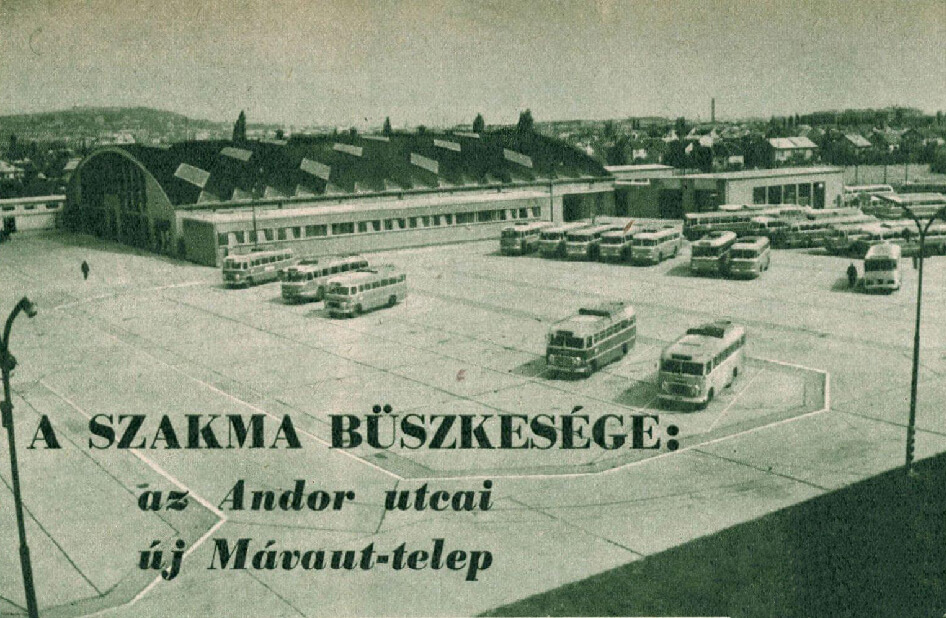
THE SECTOR'S BACKGROUND: the new Mávaut site on Andor Street
When Andor Street is built... When Andor Street is built . . .
This is what people have been saying for years at the Mávaut headquarters in Szabolcs Street and the plant in Lövőház Street, whenever they had difficulties at work, whenever they had the opportunity to complain about the harsh working conditions. But this was also the story of the "civilian" residents of the two neighbourhoods, who had to suffer the noise of the 100-200 buses parked on the streets.
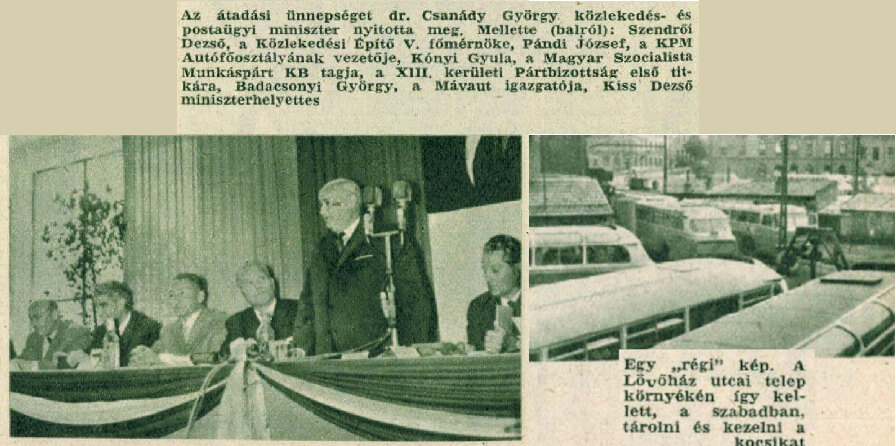
It took almost three years to build, but it was worth it. The "pride of the automotive world" was how the speakers described it at the inauguration ceremony on 19 September. Indeed, its monumentality and beauty are such that it is worth showing off to foreigners. But - and more importantly - it is also boasting state-of-the-art equipment. And it is necessary, since the merging of the two parts of the plant means that 440 buses have to be stored and maintained here. These buses carry an average of 146 000 passengers a day on their various routes. The unit covers an average of 2.7 million kilometres per month, generating a monthly income of HUF 30 million.
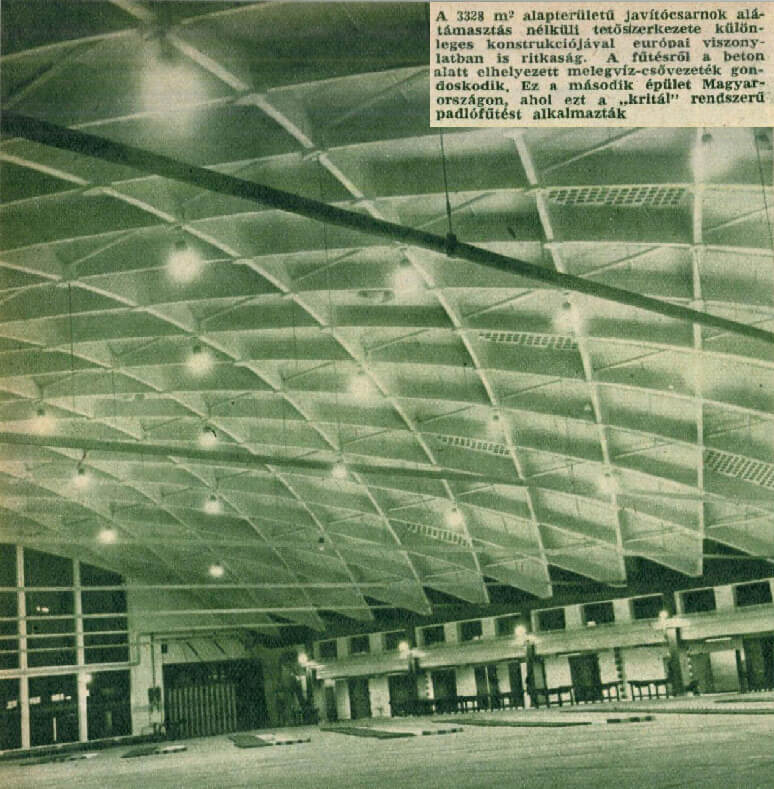
Both the designers of the Uvaterv and the contractors of the Transport Construction Company were faced with special challenges. In particular the repair hall, which is covered by a single unsupported vault on an area of 52X64 m. Such a structure had never been built in Hungary before.
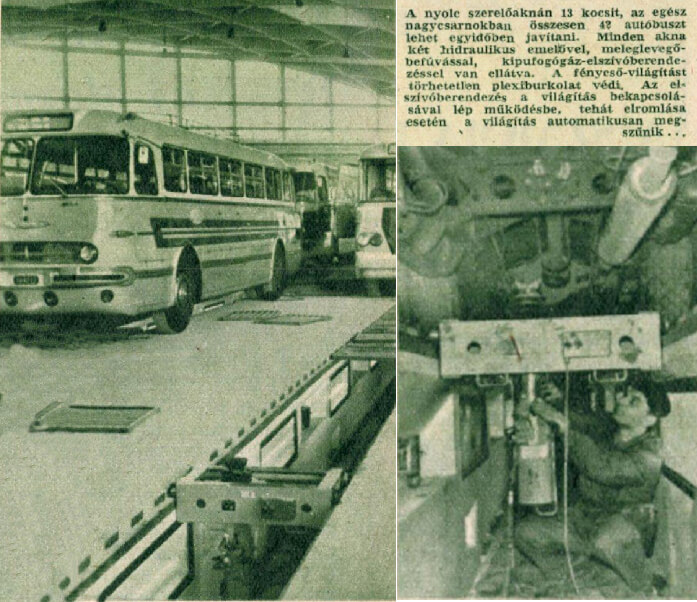
The whole traffic conurbation is a fitting part of the evolving cityscape of our capital. At the same time, its operation reduces the discrepancies between the technical equipment of the vehicle fleet and the use of vehicles. The hydro-pneumatic fuel metering device, the self-designed automatic washer - whose water curtain is now twice as strong as the one in Szabolcs Street, so that it takes only 30 seconds to wash the top of a bus - and the world-famous Emanuel greasing system, which can service 12 buses in an hour, all put the latest technology at the service of maintenance.
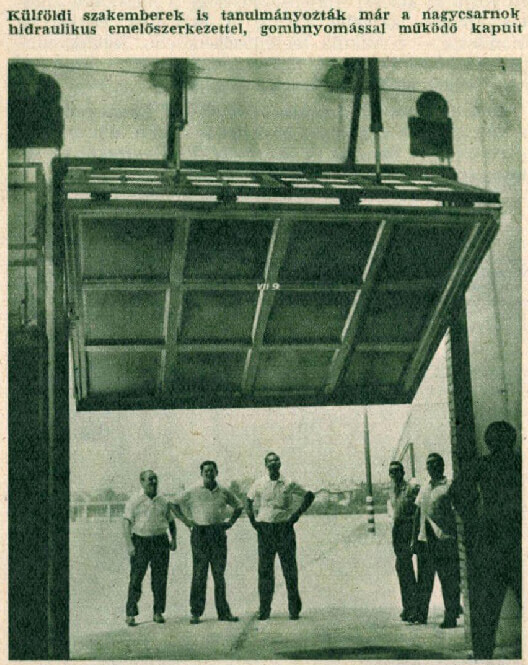
In addition to the modern traffic and technical equipment, the two-storey office building, the training room, restaurant, canteen, driver's lounge and bathroom ensure the appropriate working conditions for the employees.
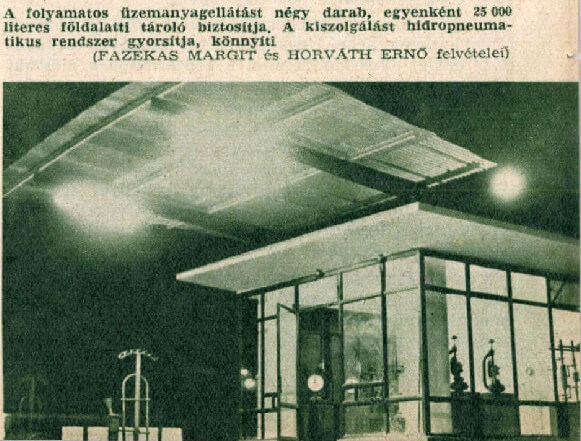
Our People's Economy donated around 46 million forints for the new facility. At the handover ceremony, Deputy Minister Dezső Kiss stressed that the great work of art had been put in deserving hands. The Mávaut, he said, is considered the most progressive and balanced collective in the profession. There are many initiatives, many ways of meeting the needs of the public,
But progress always demands new things - in terms of both traffic and organisation. So it is now up to the people of Mávaut to ensure that the shine of the new facility, the pride of the profession, does not fade.
source: arcanum / Autó-Motor 06.10.1964
